
Philippines’ GDP Growth Stumbles as High Prices, Rates Sting
The Philippine economy expanded much slower than expected in the second quarter, reeling from the impact of above-target
2023-08-10 14:57

6 survival tips for parents of live-at-home university students
A fifth of new students plan to live at home while studying at university, according to new research. But while living with their parents will undoubtedly be cheaper, it could create problems if teenagers try to live a typical student lifestyle in their mum and dad’s house – so experts advise ground rules. A new UCL and Sutton Trust study of more than 11,000 Year 13 students in England, who have either applied or plan to apply to university, found 20% had decided to live at home during term time if they got into university (14% had not yet decided). Nearly a fifth (18%) said the main reason was because they couldn’t afford to live away from home, while 46% said they wanted to be near their families. Gill Hines, co-author of Later! A Guide to Parenting a Young Adult (Piatkus), says living at home while doing further education is an increasing trend. “There’s many, many more kids living at home when they go to university – universities are reporting a lot more students are local people. But there can be problems, particularly with the social side of things,” she says. To help life with an adult student living at home remain as harmonious as possible, Hines says it’s vital for students and parents to discuss exactly what the house rules are well before term starts. “Sit down with them and talk about how things are going to be once they start uni,” she advises. “You need to talk to them about everything their new life may entail, including overnight guests, finances, and them behaving like adults so you can treat them like adults.” Here, Hines outlines the issues that need to be addressed in families where teenage students choose to live at home… 1. Set rules for helping in the houseParents need to talk to their teenager about how they’re going to contribute to the running of the home, stresses Hines. “They need to be doing much, much more than they probably have been doing. If they want the rights of being a young adult, they have to do the work of a young adult. Rights and privileges are great, but there are responsibilities too.” It’s important to be clear about what’s expected of them, which should include a high level of self-care (you probably don’t want your house to smell like student digs). They may be expected to buy and make their own food, and if so, clear up after themselves, do their own laundry – or take a turn in doing the household laundry – take their turn to clean the bathroom, put the bins out, etc. “You could either have set chores, or say that every fourth week or whatever they do a particular chore, whatever seems fair. It all needs to be discussed with them,” she says, although “they won’t like it”. Adding: “We want them to have a nice life at university, but they do need to knuckle down. Hopefully they’ll be moving out [in the future], and they need to be able to look after themselves.”2. Discuss overnight guests Parents may already have had ‘the talk’ about girlfriends or boyfriends staying overnight and what’s acceptable, but if not, now is the time to do it, says Hines. “They’re more likely to have a partner or be in a sexual relationship at this age, and may be playing around because they’re at that stage of life. Parents need to have a chat with their child about it, and also with each other about how comfortable they are with overnight guests, and some rules need to be outlined.” She suggests that, if possible, it may help to move their bedroom closer to an outside door, so they can come and go with more freedom. “I know it’s not possible for everybody,” she notes, “but if you can change an upstairs room to one downstairs for them, it might help them to not have to trail right through the house with their guests, and they’ll have a sense of being more independent.” 3. Don’t treat them like a child Hines says it can be tempting for parents whose young people live at home to treat them like children, but treat them as adults and they’re more likely to behave like one. “They’re that bit older, and they no longer get the right to be a child who’s looked after 24/7,” she stresses. Getting themselves up, getting themselves to uni, and getting their work done on time is not the parents’ responsibility anymore. “You need to be clear about that,” she stresses. “The whole point of university is for them to grow up. It’s all down to them now – you’re no longer responsible for their day-to-day life – they are.” 4. Explain what you’ll do if they break your rules Hines points out that although parents of adult children don’t have many sanctions if their house rules aren’t followed (they’re too old to be grounded) be aware of what you pay for. “If you pay for their phone and their travel and food or anything else, they need to accept that not every parent is doing that for their child at the age of 18,” she says. “It’s not a right, it’s a privilege, and some of it can be taken away.” 5. Encourage them to get a job Hines points out that many students living away from home while at university have to get a part-time job to make ends meet, and says: “I would encourage them to get an income – as well as needing the money, it’s good experience.” 6. Discuss finances Although once teens are earning, some parents may expect a contribution to room and board, Hines says if they’re students with a part-time job it might not be a feasible request. “I don’t think they should be contributing to the financial running of the home – at that age, I think it’s unrealistic to expect them to – but I think they should be contributing in other ways, like helping around the house.”
2023-08-10 13:59
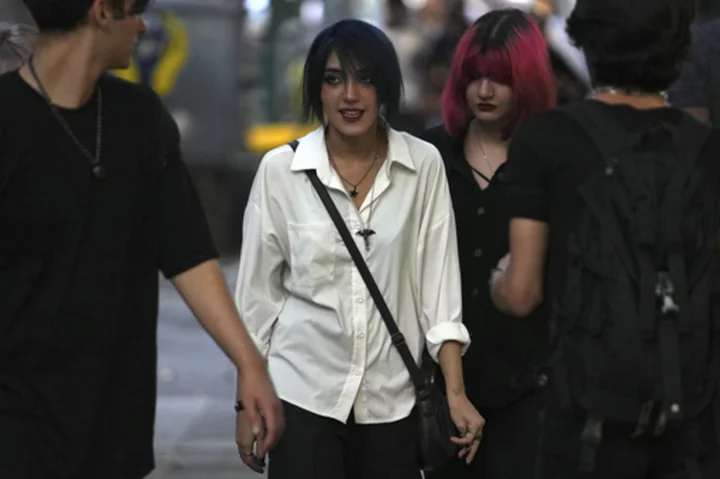
A year ago, an Iranian woman's death sparked hijab protests. Now businesses are a new battleground
Iranian authorities have for months done little to enforce the law on women wearing the mandatory headscarf, but now the country’s theocracy is pushing to make businesses the new battleground over the hijab
2023-08-10 13:51
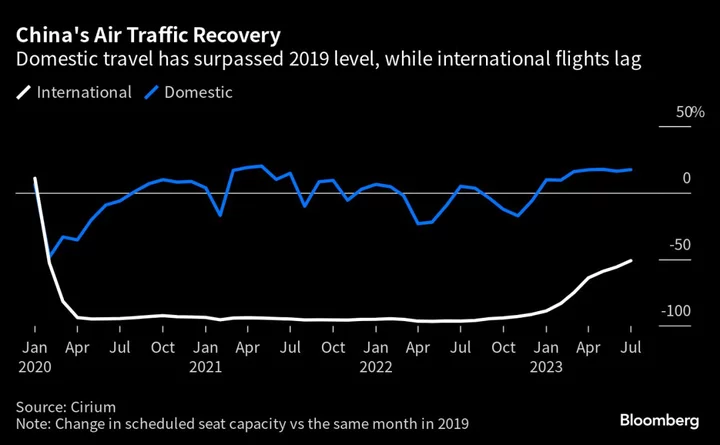
China Allows Group Tours to US, UK, Japan in Travel Boost
China lifted a ban on group travel to a slew of countries including the US, UK, Australia, South
2023-08-10 12:59
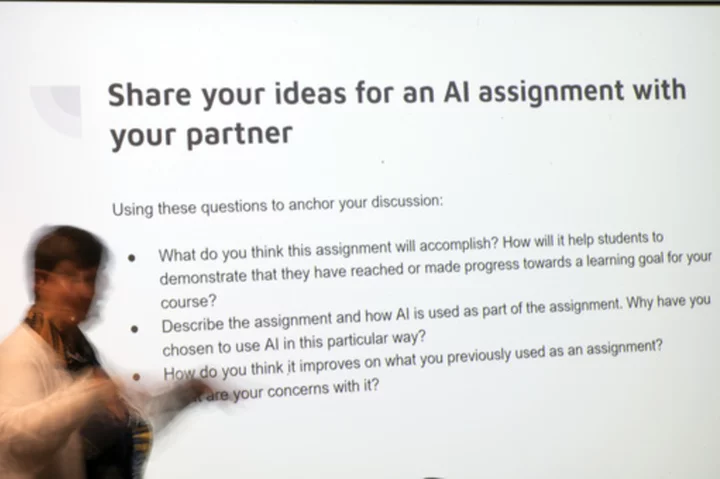
Paper exams, chatbot bans: Colleges seek to 'ChatGPT-proof' assignments
ChatGPT and other artificial intelligence chatbots have become the go-to source for cheating in college
2023-08-10 12:19
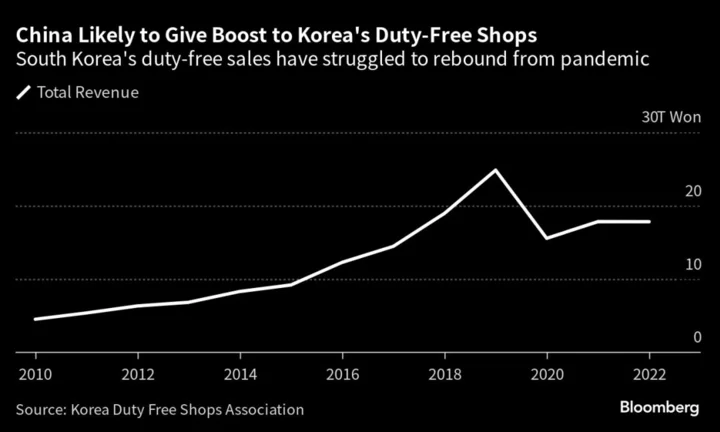
Japan, Korea Tourism Stocks Rise on Prospect of Chinese Visitors
Optimism that China will reopen the door for group tours to Japan and South Korea sparked a flurry
2023-08-10 11:25

Vilo 6 Mesh Wi-Fi System Review
When we reviewed the Vilo Mesh Wi-Fi System back in 2021, we were impressed with
2023-08-10 08:27
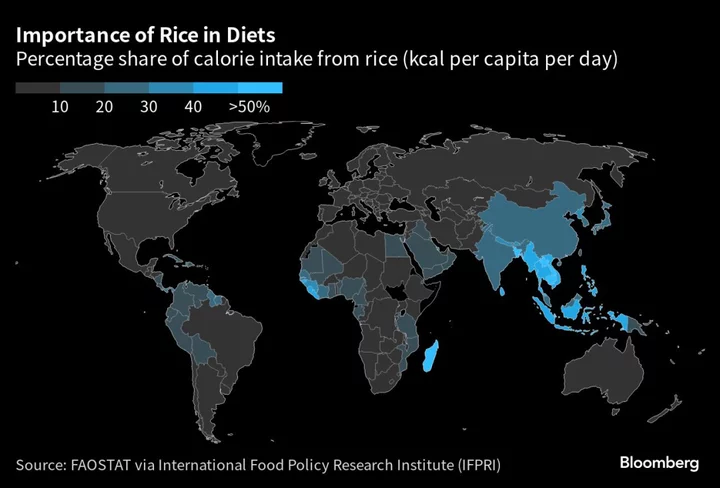
Soaring Rice Prices Stretch Budgets for Billions in Asia, Africa
A surge in rice prices to the highest level in almost 15 years is renewing fears that food
2023-08-10 08:26

Lenovo LOQ 15 Review
Following the resounding success of its Legion line of gaming laptops, Lenovo recently introduced an
2023-08-10 08:25
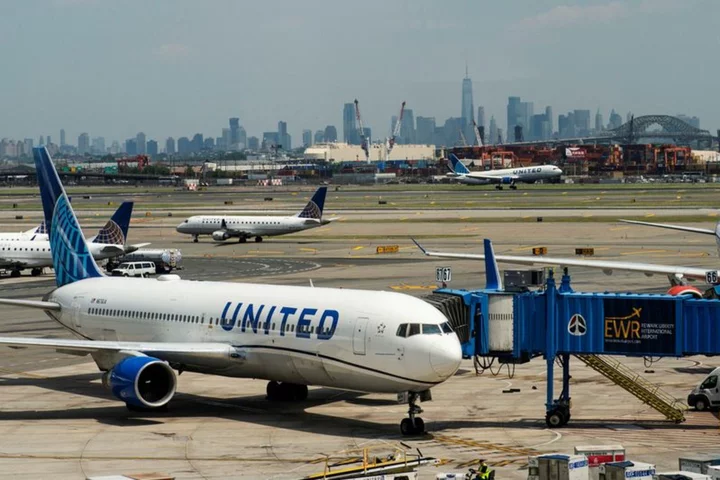
US FAA extends cuts to airlines' minimum flight requirements at NY airports
By David Shepardson WASHINGTON (Reuters) -U.S. regulators said on Wednesday they would extend temporary cuts to minimum flight requirements at
2023-08-10 07:54
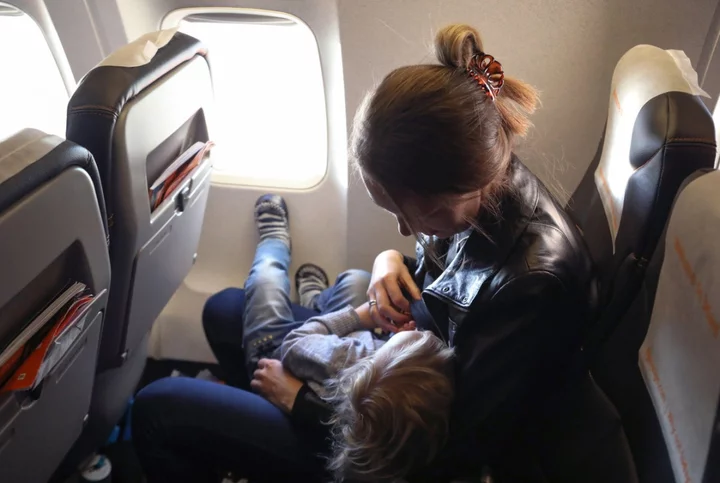
Woman says she was told not to breastfeed on flight because it would make passengers ‘uncomfortable’
People are coming to a woman’s defence after she claimed that she was told not to breastfeed on a plane because it would make other travellers “uncomfortable”. Chelsea Williams took to Facebook on 7 August to describe what she says was her experience with TUI Airways, a British airline owned by the TUI Group. She claimed that while she was in her seat during a recent flight and breastfeeding her child, one of the plane’s crew members told her to stop. “During our outbound flight I was told I was not allowed to breastfeed (even though we were both buckled) during takeoff and landing,” she wrote. “I have never had this with other airlines, in fact, it is encouraged to help with baby ear pain!” She then claimed that, after the experience, she was encouraged to reach out to TUI about its travelling regulations. “Before my inbound flight, I thought I’d check what the official rules were as I was shocked it wasn’t allowed as it left my baby screaming as a consequence,” she wrote. William’s post went on to include the message that her husband, Thomas, sent to TUI, asking if his partner could breastfeed their five-week-old baby while their plane is taking off and landing. According to the screenshot of the message, TUI then responded by encouraging Thomas’ wife to avoid breastfeeding on the plane, for the sake of other passengers. “There are no official restrictions, however, we would not recommend it because it could make other people uncomfortable,” the message read. Williams also added that the response from TUI was “complete discrimination and majorly disappointing”. Speaking to The Independent, Williams said that while on her first flight with TUI, the airline employee tried to “disguise the airline’s discrimination with the guise of a ‘safety issue’ but later retracted that”. “The cabin crew member said: ‘You’ll need to stop feeding as it is not permitted on takeoff and landing,’” she explained. “She then said my five-week old had to forward face, I said that she doesn’t have sufficient neck support at that age, which was answered with: ‘Maybe you could just sit her against you facing forward and lean back a bit.’” She also specified that, despite what TUI had allegedly told her husband in its message, she was able to breastfeed her daughter on her flight back home. Her Facebook post has since gone viral, with more than 1,200 reactions. In the comments, many people have gone on to defend Williams while criticising TUI for its “damaging” message about mothers breastfeeding in public. “Oh TUI - it’s damaging comments like this that can deter women from breastfeeding or breastfeeding in public,” one person wrote. “What’s so offensive about feeding a baby and if people are uncomfortable about a baby feeding in the most natural way by milk that is designed for HUMANS then that is their issue not hers or her baby’s fault.” “If other people are allowed to eat and drink in public then why is breastfeeding our children not allowed. What a disgusting response!!!” another added. “To all the breastfeeding moms out there, keep going. We’ve got this. Screw what other people say and think. Just smile at them and carry on, that will make them uncomfortable!” “This is absolutely disgraceful!!” a third wrote. “I am flying with TUI next month and have every intention of breastfeeding during take off and landing whether anyone feels ‘uncomfortable’ or not!” TUI has since responded to the comments on Williams’ post, with the company stating that it is “aware of the situation and are conducting an internal investigation”. TUI also added that “breastfeeding is permitted” on its flights, while the company “advises against it during takeoff and landing for safety reasons”. According to the Centers for Disease Control and Prevention, mothers are encouraged to breastfeed their children “during takeoff and landing when travelling by airplane,” as “this will help to protect your child from ear pain due to cabin pressure changes”. The health agency also encourages mothers to feed their children “on demand,” noting that the best way for them to “maintain [their] milk supply is to breastfeed whenever [their] baby is hungry”. Speaking to Metro, Williams opened up about the breastfeeding incident during her first TUI Airways flight, which was from England to Spain. She said that after she stopped breastfeeding, after the airline employee had asked her to do so, her “baby was obviously crying”. “Quite drastically because I had cut her feed while she was in the middle of it - and the toddler was crying,” she added, referring to her two-year-old child. “I was sweating, I was on the verge of tears. I felt like everyone’s eyes were on us because obviously the baby was screaming and I obviously looked not great at that moment. The baby’s cries were getting worse – she was obviously in pain, she was obviously hungry as well.” Williams said that she waited until the seatbelt lights went off to start feeding her baby again. In a statement toThe Independent, TUI said: “We are really sorry for the distress caused to Ms Williams and her infant. As a family friendly travel company we support breastfeeding on our flights at any time. We will be making sure that all colleagues are retrained on our breastfeeding friendly policy.” Williams told The Independent that she “had a call with TUI” and talked to the company about some of the changes she hopes to see implemented. “They did sound receptive to some of the points raised, I will continue to push them to ensure these changes are made,” she said. Read More Breastfeeding Olympians want it all: Top careers and motherhood Ireland Baldwin reveals why she did not want to breastfeed her daughter after giving birth Couple flies abroad for day trip after they find flights are cheaper than train to London Americans spark backlash after claiming that Europeans ‘don’t believe in water’ Grimes says her and Elon Musk’s three-year-old child X ‘knows a lot about rockets’ What is TikTok’s ‘soft life era’ and could it be the secret to happiness?
2023-08-10 06:53

Uncle Sam Needs Your AI Help, and DARPA Will Hand Out $20M to Make it Happen
LAS VEGAS—The Pentagon’s research-and-development shop showed up at the Black Hat security conference here with
2023-08-10 06:48
